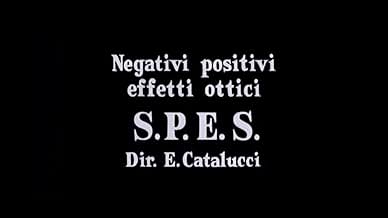Struggling with life in 18th-century Italy, young Metello Salani is determined to change his situation for the better - but love, marriage and politics complicate things considerably...Struggling with life in 18th-century Italy, young Metello Salani is determined to change his situation for the better - but love, marriage and politics complicate things considerably...Struggling with life in 18th-century Italy, young Metello Salani is determined to change his situation for the better - but love, marriage and politics complicate things considerably...
- Awards
- 8 wins & 6 nominations
Lucia Bosè
- Viola
- (as Lucia Bosé)
Gabriele Lavia
- A prisoner
- (uncredited)
Storyline
Featured review
Mauro Bolognini's most critically acclaimed film is far from his best. A tale of a 'working class hero' in turn-of-the-century Florence, it seems fundamentally unsuited to this director's world view. Most of Bolognini's films take place in an aesthetic and rather camp universe ruled by powerful and glamorous women (Claudia Cardinale in La Viaccia, Gina Lollobrigida in Un Bellissimo Novembre, Dominique Sanda in The Inheritance) who hold effortless sway over effete and malleable men.
Yet this film of Vasco Pratolini's novel was Bolognini's pet project for nearly a decade. If he had managed to cast Albert Finney (as he hoped to do in 1963) the character and his story might have a shade more conviction. But pretty-boy pop star Massimo Ranieri barely seems capable of reading his lines off a cue card, never mind digesting huge chunks of Das Kapital. Faced with the inadequacy of his male lead, Bolognini does what he has always done - and lets the women rule the film.
The least interesting woman, by far, is Metello's saintly wife Ersilia (Ottavia Piccolo). A salt-of-the-earth proletarian Madonna figure, she keeps her husband in line largely by boring him (and the audience) into a state of submission. Piccolo is an actress of minimal charisma, and her Best Actress award from the 1970 Cannes Film Festival has to be one of life's great mysteries. Far more amusing is Tina Aumont as Idina - the couple's frivolous and flirtatious neighbour. We wait for the inevitable to happen, and of course...
Early on in the film, Metello has a fling with Viola - a sensual middle-aged school teacher played by Lucia Bose. As usual, Bose is stunning but has far too little to do. One of the screen's great wasted natural resources, Bose has the magnetism of a Garbo - but she also has a maddening tendency to retire for decades at a time. Given roles as limited as this one, who can really blame her?
As always in a Bolognini film, the visuals in Metello are flawless. The camerawork by Ennio Guarnieri evokes old photographs of the period. The sets and costumes (supervised by Piero Tosi) are almost eerie in their perfection. Midway through, the cast enjoy a night out at a music hall and the film springs to life - as Bolognini finally gets a chance for a bit of flamboyance, which is what he does best.
Sorry, but I can't get excited about Metello. Its appeal, I suspect, is largely to those who do not enjoy Bolognini's other and better work. Still, it's one of his easier films to come by. Fans of arty Italian cinema must take our pleasure where we can get it!
Yet this film of Vasco Pratolini's novel was Bolognini's pet project for nearly a decade. If he had managed to cast Albert Finney (as he hoped to do in 1963) the character and his story might have a shade more conviction. But pretty-boy pop star Massimo Ranieri barely seems capable of reading his lines off a cue card, never mind digesting huge chunks of Das Kapital. Faced with the inadequacy of his male lead, Bolognini does what he has always done - and lets the women rule the film.
The least interesting woman, by far, is Metello's saintly wife Ersilia (Ottavia Piccolo). A salt-of-the-earth proletarian Madonna figure, she keeps her husband in line largely by boring him (and the audience) into a state of submission. Piccolo is an actress of minimal charisma, and her Best Actress award from the 1970 Cannes Film Festival has to be one of life's great mysteries. Far more amusing is Tina Aumont as Idina - the couple's frivolous and flirtatious neighbour. We wait for the inevitable to happen, and of course...
Early on in the film, Metello has a fling with Viola - a sensual middle-aged school teacher played by Lucia Bose. As usual, Bose is stunning but has far too little to do. One of the screen's great wasted natural resources, Bose has the magnetism of a Garbo - but she also has a maddening tendency to retire for decades at a time. Given roles as limited as this one, who can really blame her?
As always in a Bolognini film, the visuals in Metello are flawless. The camerawork by Ennio Guarnieri evokes old photographs of the period. The sets and costumes (supervised by Piero Tosi) are almost eerie in their perfection. Midway through, the cast enjoy a night out at a music hall and the film springs to life - as Bolognini finally gets a chance for a bit of flamboyance, which is what he does best.
Sorry, but I can't get excited about Metello. Its appeal, I suspect, is largely to those who do not enjoy Bolognini's other and better work. Still, it's one of his easier films to come by. Fans of arty Italian cinema must take our pleasure where we can get it!
- How long is Metello?Powered by Alexa
Details
Contribute to this page
Suggest an edit or add missing content














